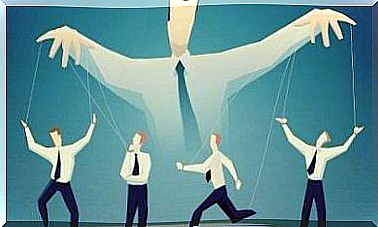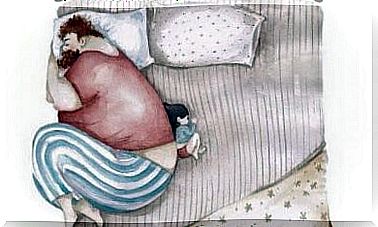Humiliation: An Attack On Identity

Some emotions we feel very intensely. Guilt, anger, sadness and rage are some of them. But there is one that we have not mentioned and that is so strong it can really tear us to pieces: humiliation.
Humiliation is a negative feeling that gives a deep impression on us. To feel that we are worthless, only mediocre, that what we do is ridiculed… sometimes it is a cross we carry for a long time.
Humiliation activates the areas of the brain associated with pain
Researchers from De Universiteit van Amsterdam (UvA) have conducted a study that compared different emotional reactions in 46 volunteers. The researchers analyzed the participants’ brain waves as they saw insults and flattery on a screen.
Participants were also told stories where they had to sit in the protagonist’s shoes. It would encourage them to connect their emotions through empathy. For example, in a situation where they would meet a friend. Then, as soon as the person they were going to meet saw them, that person turned around and left.
The researchers found that the feeling of humiliation caused much faster and more intense brain activity than joy. It was more negative than anger, and areas related to pain were activated.

Although compliments evoked joy, the feeling of humiliation was much more intense than the pleasant feeling. But the most incredible thing is that anger cannot be compared to humiliation. The insults made many participants upset or angry, but humiliation had a much more negative effect.
Humiliation is a part of everyday life
Humiliation is a feeling that is not uncommon in our daily lives. In fact, many people can only communicate by humiliating others. Somehow they think they are actually doing a good thing. However, they lack the empathy they need to convey what they want to say in a finer and more subtle way.
For example, suppose a mother praises her son’s friend. She compares her son to his friend. Without realizing it, she overlooks her son’s achievements. And if she makes the comparisons when both the son and his friend are present, the son will feel even greater humiliation.
We are often in such situations, especially in the workplace. This feeling even invades our relationships. It happens when one person makes fun of the other and makes them feel inferior. Humiliation is an unpleasant, intense feeling that usually creates deep, long-lasting wounds. It affects our self-esteem, making it difficult for us to rebuild it later.

Humiliation and self-esteem
What can we do when we face humiliation? How can we avoid humiliation leaving a deep impression on us? How can we keep it from bothering us so much?
The secret is to know and value ourselves. By not giving more power to the other person’s opinion than to our own. By knowing who we are and not letting anyone else define us. To summarize, the secret is to make sure that others’ perceptions of us do not affect our self-esteem.
To do that, we really need to pay attention to our inner dialogue: the way we talk to ourselves. Do we tell ourselves nice things, or do we just say over and over, “I’m so stupid”, “I’m so bad at this” or “I’m hopeless”?
We must treat ourselves, value ourselves and love ourselves. If we can show tolerance to others, why can we not show tolerance towards ourselves? Allow yourself to make mistakes, you are not perfect.
Let us value ourselves so much that we become indifferent to everyone’s attempts to humble ourselves. Because we can not stop others from humbling ourselves, but we can change the way it affects us.
Now that we understand that humiliation is an attack on our identity and an attempt to cause pain, let’s do something about it. Let us begin to value ourselves, let us not be so dependent on external validation and instead believe in ourselves.
Source list:
Study The University of Amsterdam (UvA)









